
Além Risco
Promoter: Science Retreats
Territorial Reach: Central Alentejo Region
Target audience: general population
Duration: 2 years
SDG: 3. Good health and well-being; 11. Sustainable cities and communities; 12. Responsible consumption and production; 13. Climate Action; 17. Partnerships for the goals

Portugal is among the most vulnerable European countries when it comes to the impacts of climate change and the Alentejo is one of the most affected regions. Climate models predict an increase in the magnitude, frequency and duration of heatwaves across the country, and in particular in the Alentejo.
Reduce the “heat island” effect
The Além Risco project aims at increasing the capacity of local populations in the Central Alentejo Region to adapt to the impact of extreme heat on public health. The project will engage citizens in planting 50,000 trees in urban areas of the Central Alentejo Region, thus helping to reduce the “heat island” effect urban areas are more susceptible to.
The goal is to reduce the “heat island” effect in urban environments, slowing the trend of increased health risks associated with heatwaves. This impact will be reflected in a reduction in morbidity and mortality rates, particularly in the more exposed and vulnerable social groups, helping to improve the quality of life of people in general.
New concepts
Além Risco will develop new concepts for planning and managing urban green spaces in the Central Alentejo Region. Each green space will be identified as a living lab, together with its co-promoters and local guardians. These spaces will be eco-efficient and resilient to the extreme weather the Alentejo is known for and, preferably, will be populated with native species.
Besides implementing a unique pilot case of climate adaptation with a preventive effect on public health, Além Risco focuses on achieving multiple sustainable development goals, thus contributing to social cohesion and environmental balance.
By co-funding this project, the Calouste Gulbenkian Foundation highlights the commitment to the urgency of climate action, seeking to contribute to a society that is more resilient and better prepared for future global change, while protecting the most vulnerable.
More infoSustainable Development Goals
This project contributes to the following SDG targets:
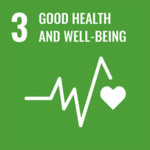
Target 3.4
By 2030, reduce by one third premature mortality from non-communicable diseases through prevention and treatment and promote mental health and well-being.
Target 3.d
Strengthen the capacity of all countries, in particular developing countries, for early warning, risk reduction and management of national and global health risks.
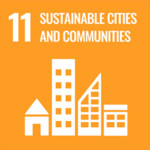
Target 11.b
By 2020, substantially increase the number of cities and human settlements adopting and implementing integrated policies and plans towards inclusion, resource efficiency, mitigation and adaptation to climate change, resilience to disasters, and develop and implement, in line with the Sendai Framework for Disaster Risk Reduction 2015-2030, holistic disaster risk management at all levels.
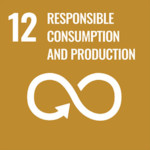
Target 12.8
By 2030, ensure that people everywhere have the relevant information and awareness for sustainable development and lifestyles in harmony with nature.
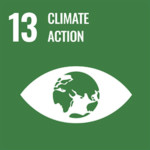
Target 13.1
Strengthen resilience and adaptive capacity to climate-related hazards and natural disasters in all countries.
Target 13.2
Integrate climate change measures into national policies, strategies and planning.
Target 13.3
Improve education, awareness-raising and human and institutional capacity on climate change mitigation, adaptation, impact reduction and early warning.
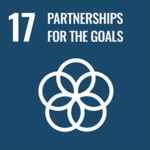
Target 17.17
Encourage and promote effective public, public-private and civil society partnerships, building on the experience and resourcing strategies of partnerships.
